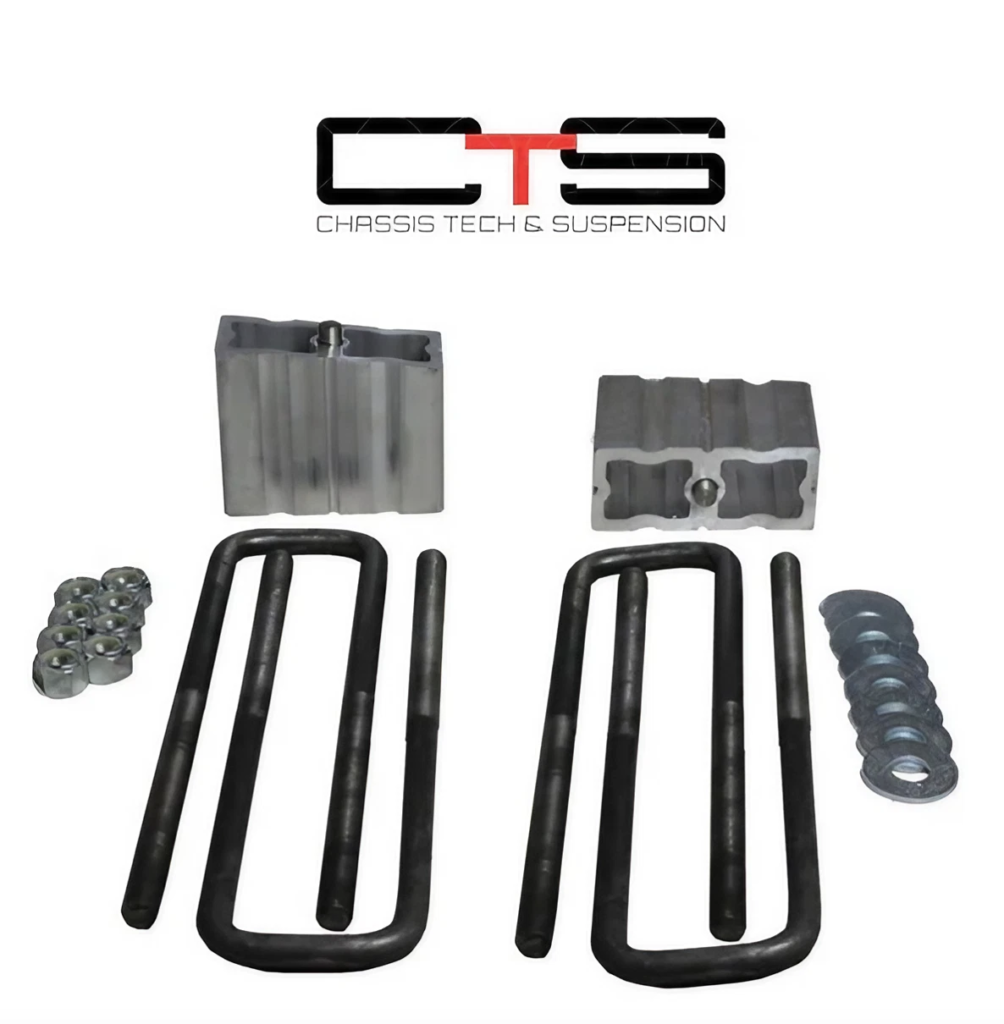One of the most popular and cost-effective methods of lifting your vehicle is using lifted blocks. When choosing, you'll often face two main material options: aluminum vs. steel lifted blocks.
In this article, we'll explore the pros and cons of aluminum and steel-lifted blocks. We'll explore key factors to consider, such as strength, weight, durability, and cost, to help you determine which material best suits your specific needs and preferences.
Aluminum Lifted Blocks: Lightweight and Corrosion-Resistant
Aluminum-lifted blocks have gained popularity in recent years due to their unique combination of lightweight construction and corrosion resistance. These blocks are crafted from high-grade aluminum alloys, which offer several distinct advantages over their steel counterparts.
One of the most significant benefits of aluminum-lifted blocks is their weight savings. Aluminum is a much lighter material than steel, which means that aluminum blocks can provide the same lift while adding less overall weight to your vehicle.
This reduction in weight can lead to improved fuel efficiency, better handling, and reduced stress on your vehicle's suspension components.
Also see: LINK WITH ANOTHER BLOG POST
Corrosion Resistance and Durability
Another key advantage of aluminum-lifted blocks is their inherent resistance to corrosion. Unlike steel, which can rust and deteriorate over time when exposed to moisture and the elements, aluminum naturally forms a protective oxide layer on its surface.
This layer acts as a barrier, preventing further corrosion and ensuring the long-term durability of the lifted blocks.
The corrosion resistance of aluminum is particularly beneficial for those who live in coastal areas or regions with harsh winter conditions, where road salt and other corrosive substances are common.
By opting for aluminum lifted blocks, you can have peace of mind knowing that your suspension components will remain in good condition, even when subjected to these challenging environments.
Steel-lifted Blocks: Strength and Affordability

Steel-lifted blocks have been a staple in the automotive industry for decades, and for good reason. These blocks are known for their exceptional strength, durability, and affordability, making them a popular choice among vehicle owners and enthusiasts alike.
One of the primary advantages of steel-lifted blocks is their unmatched strength. Steel is an inherently strong material, capable of withstanding significant loads and stresses without deforming or failing.
This makes steel blocks an excellent choice for heavy-duty applications, such as towing or hauling, where the added weight and stress on the suspension can be substantial.
Cost-Effectiveness and Availability
Another significant benefit of steel-lifted blocks is their cost-effectiveness. Steel is generally less expensive than aluminum, which means that steel blocks are often more affordable than their aluminum counterparts.
This cost advantage can be particularly appealing for those working with a tight budget or looking to lift their vehicle without breaking the bank.
In addition to their affordability, steel lifted blocks are also widely available. Due to their long-standing popularity and extensive use in the automotive industry, steel blocks can be easily sourced from a variety of manufacturers and retailers.
This widespread availability ensures that you can find the right size and style of steel block to suit your specific vehicle and lifting needs.
Comparing Aluminum and Steel Lifted Blocks
When choosing between aluminum and steel lifted blocks, consider your specific requirements and priorities. Each material has its strengths and weaknesses, so evaluate your needs before deciding.
-
Aluminum Lifted Blocks:
- Weight Savings: Lightweight construction improves vehicle performance and efficiency.
- Corrosion Resistance: Durable in harsh environments, ensuring long-lasting use.
-
Steel Lifted Blocks:
- Strength: Ideal for heavy-duty applications due to inherent strength.
- Affordability: Cost-effective and widely available, practical for budget-conscious users.
Determine your priorities to select the best material for your lifted blocks.
Factors to Consider
When comparing aluminum and steel lifted blocks, there are several key factors to keep in mind:
- Weight: Aluminum blocks are significantly lighter than steel, which can impact your vehicle's performance and efficiency.
- Strength: Steel blocks offer unmatched strength, making them suitable for heavy-duty applications and demanding conditions.
- Corrosion resistance: Aluminum blocks are naturally corrosion-resistant, while steel blocks may be prone to rust and deterioration over time.
- Cost: Steel blocks are generally more affordable than aluminum, making them a budget-friendly option for many vehicle owners.
- Availability: Steel blocks are widely available, while aluminum blocks may be more specialized and harder to source in some cases.
Installation and Maintenance
Whether you choose aluminum or steel lifted blocks, proper installation and maintenance are crucial for ensuring the longevity and performance of your suspension system.
When installing lifted blocks, it's essential to follow the manufacturer's instructions carefully and use the appropriate tools and hardware.
It's also important to regularly inspect your lifted blocks and suspension components for signs of wear, damage, or corrosion. This includes checking for cracks, deformation, or other signs of stress and ensuring that all hardware is properly tightened and secure.
Conclusion: Choosing the Right Lifted Blocks for Your Vehicle
In conclusion, aluminum and steel lifted blocks offer distinct advantages and disadvantages, making it essential to consider your specific needs and priorities when deciding carefully.
Ultimately, the right choice between aluminum and steel lifted blocks will depend on your requirements, preferences, and budget. By carefully evaluating the key factors discussed in this article, you can make an informed decision that will help you achieve the perfect lift for your vehicle.
We invite you to explore our selection of high-quality lifted blocks.

